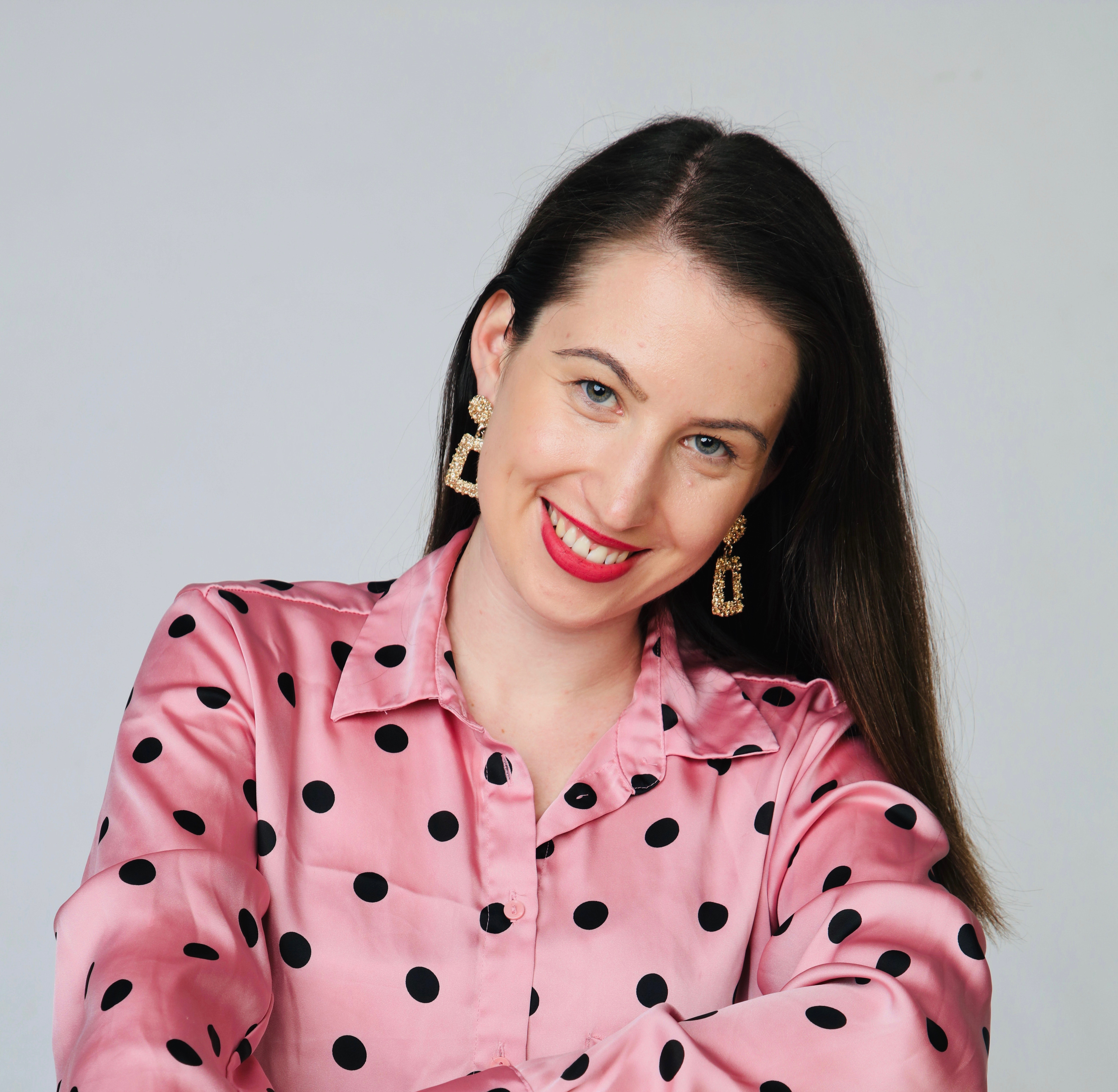After a two-year break from live events, the traditional 100% Start:up 2022 Forum in the crowded large hall of the Technology Park Ljubljana once again convinced us that the desire for entrepreneurship in Slovenia is still going strong! The financial and moral support for startups is provided by the dedicated team of the Slovene Enterprise Fund, which is again helping innovative entrepreneurial ideas with money, the right contacts, mentors and inclusion in accelerator programs. The event was followed by local Roadshow events in Novo mesto, Nova Gorica, Velenje and Maribor. Don't forget to mark the deadline in your calendar for the P2 and SK75 pre-selection, which is Wednesday 13 April!
Technology, collaboration and ambition are the 3 key ingredients for success
In the opening speech given by the Director of the Technology Park Ljubljana, Jernej Pintar, we unraveled three key ingredients for success. Technology, collaboration and ambition are what future entrepreneurs should not lack, and experienced mentors will faithfully support them. The introductory part of the Forum was continued by the representatives of the Slovene Enterprise Fund, Darinka Meško and Nina Urbanič, who gave the packed room all the important information and advantages regarding the P2 grant for startups, the SK75 convertible loan and the SI-SK co-investment.
"The evaluation committee needs to understand what you understand and find some added value in your idea, i.e. to see if it makes sense to pursue it further. The aim should be to create new businesses, new jobs, to stimulate employment," said said Darinka Meško, who presented the P2.
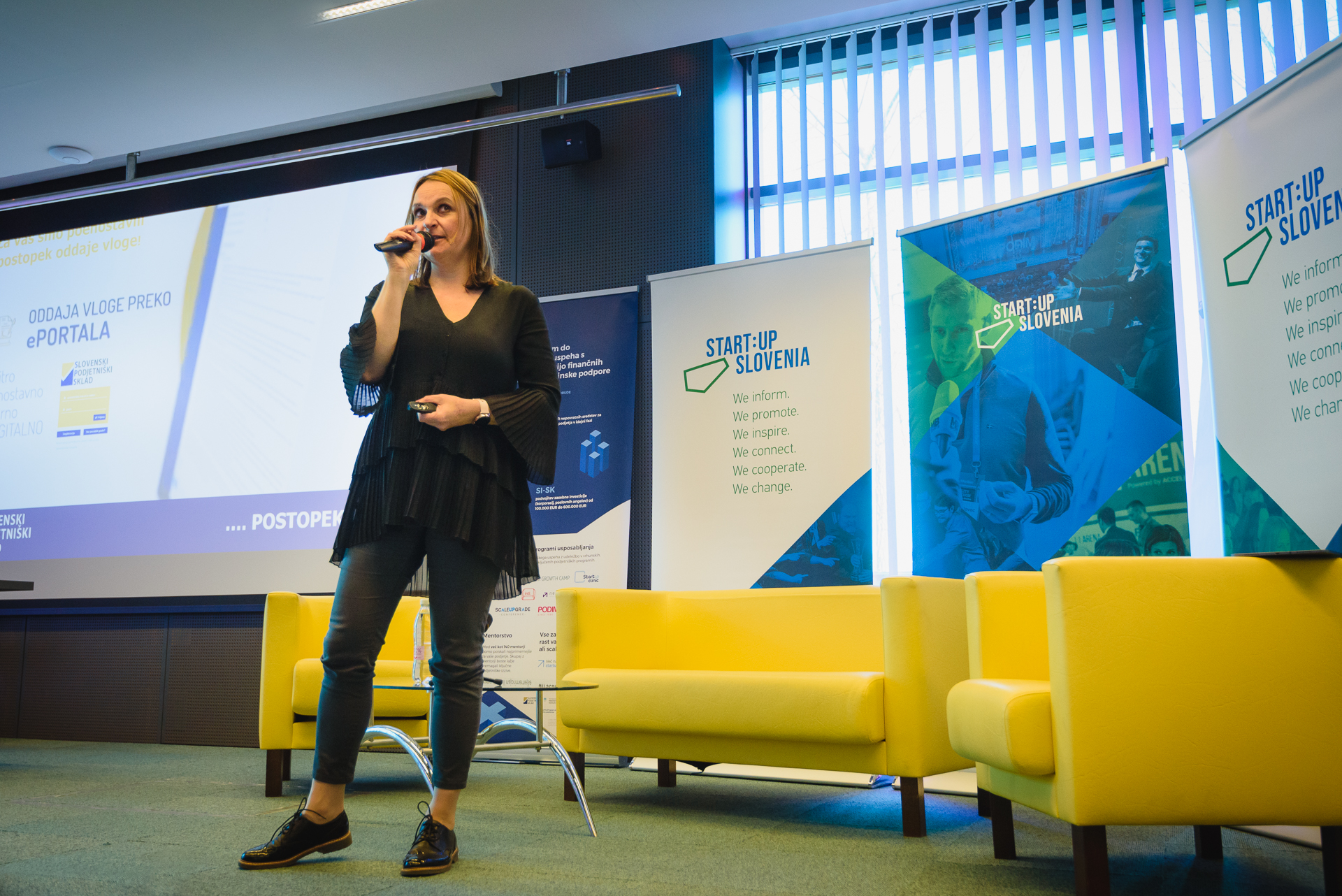 Photo: Jernej Humar
Photo: Jernej Humar
40 million in funding over the last 15 years and certain changes in 2022
Since 2006, the P2 grants have helped startups with as much as €40 million in funding, but the aim has always been to develop and launch startups, to test their idea in entreprenerial water, to explore whether the product can be sold at all, or perhaps to pivot the idea.
The most common mistakes whenapplying for a call for proposals are something that every young company naturally wants to avoid, and the most common are:
Unpaid obligations to the Financial Administration of the Republic of Slovenia;
Inconsistent information in the application form and presentation plan;
Planned operating loss;
Vague Idea or applpuing only to obtain funding;
Low innovativeness of the project;
Poor market knowledge;
Obtaining funding for the same project in severals calls for proposals (double funding);
Inappropriate signatory.
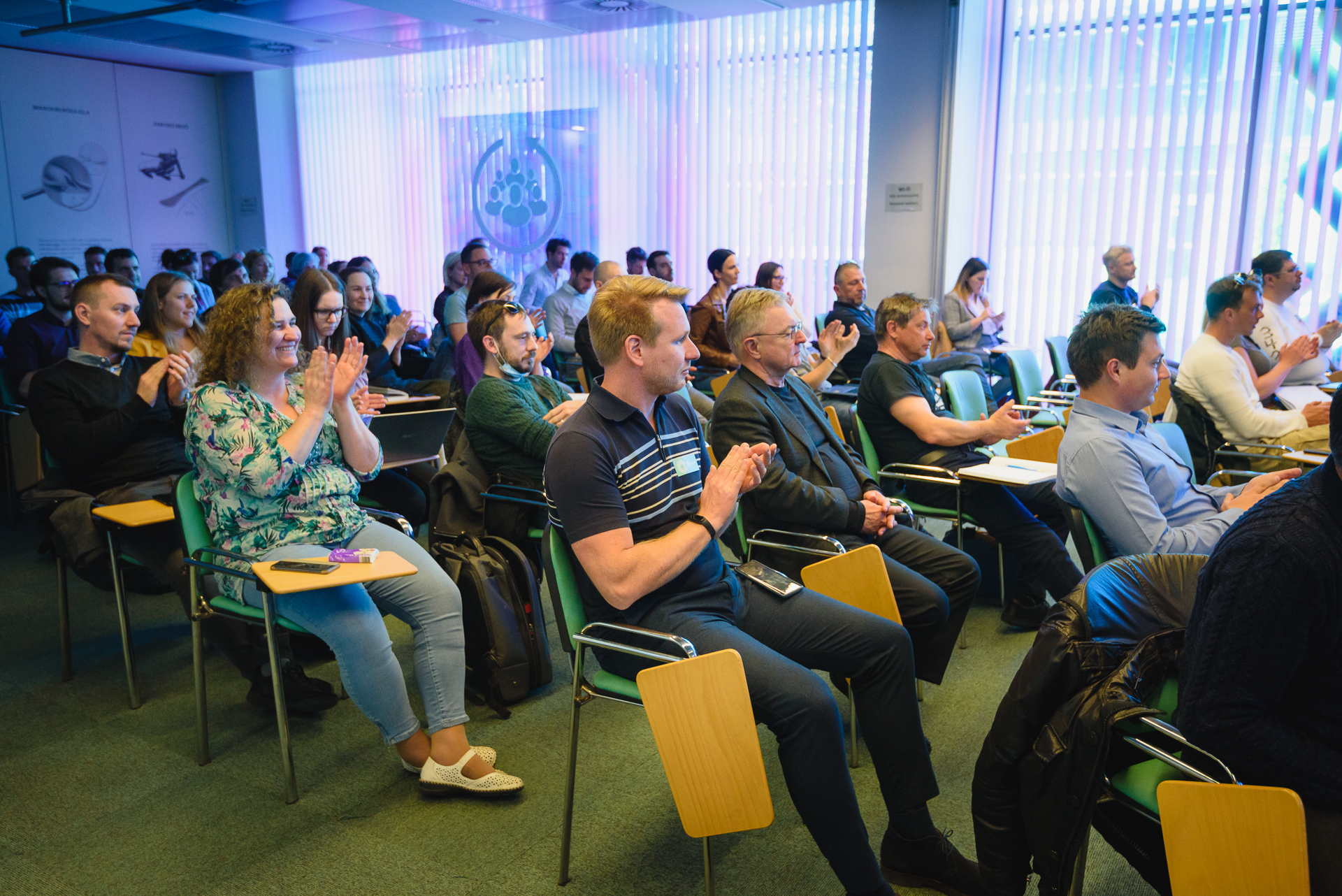
Photo: Jernej Humar
One of the changes highlighted by the Fund's representative is the digital submission of the application, where submitting companies will be assisted by a handy video on how to submit the application correctly. The second change, the so-called compliance assessment, sets a date by which all activities must be completed (30.09.2023) and the objectives set must be realistic. As every year, ideas that are new are rewarded, but of course, it is also necessary to prove that they are genuinely fresh and new.
PRE-SELECtion application for p2 by 13.4.2022
The SK75 convertible loan will be available in two terms
For young companies in the form of limited companies (d.o.o.), not less than 6 months old and not more than 5 years old, the SK75 convertible loan is available in the spring and autumn terms. Nina Urbanič, a representative of the Slovene Enterprise Fund, stressed that companies applying should really check the eligibility conditions well before they arrange all the necessary documentation. If you think the call is really the one for you, you can apply for SK75 even if you have received another call up to and including 2021.
PRE-SELEction application for SK75 by 13.4.2022
more about SK75 and application 13.5.2022
How to effectively change the direction of your business based on market signals
The first panel of the day was opened by Ajda Kaluža, co-founder of Arvio, which has received P2 and SK75 support in the past, and Klemen Furlan, co-founder of GoGiro, a company that is a recipient of the SI-SK call. Klemen joined us virtually from Vienna and shared with us the news that they have just entered into a partnership with the legendary Hotel Sacher. Congratulations, Klemen!
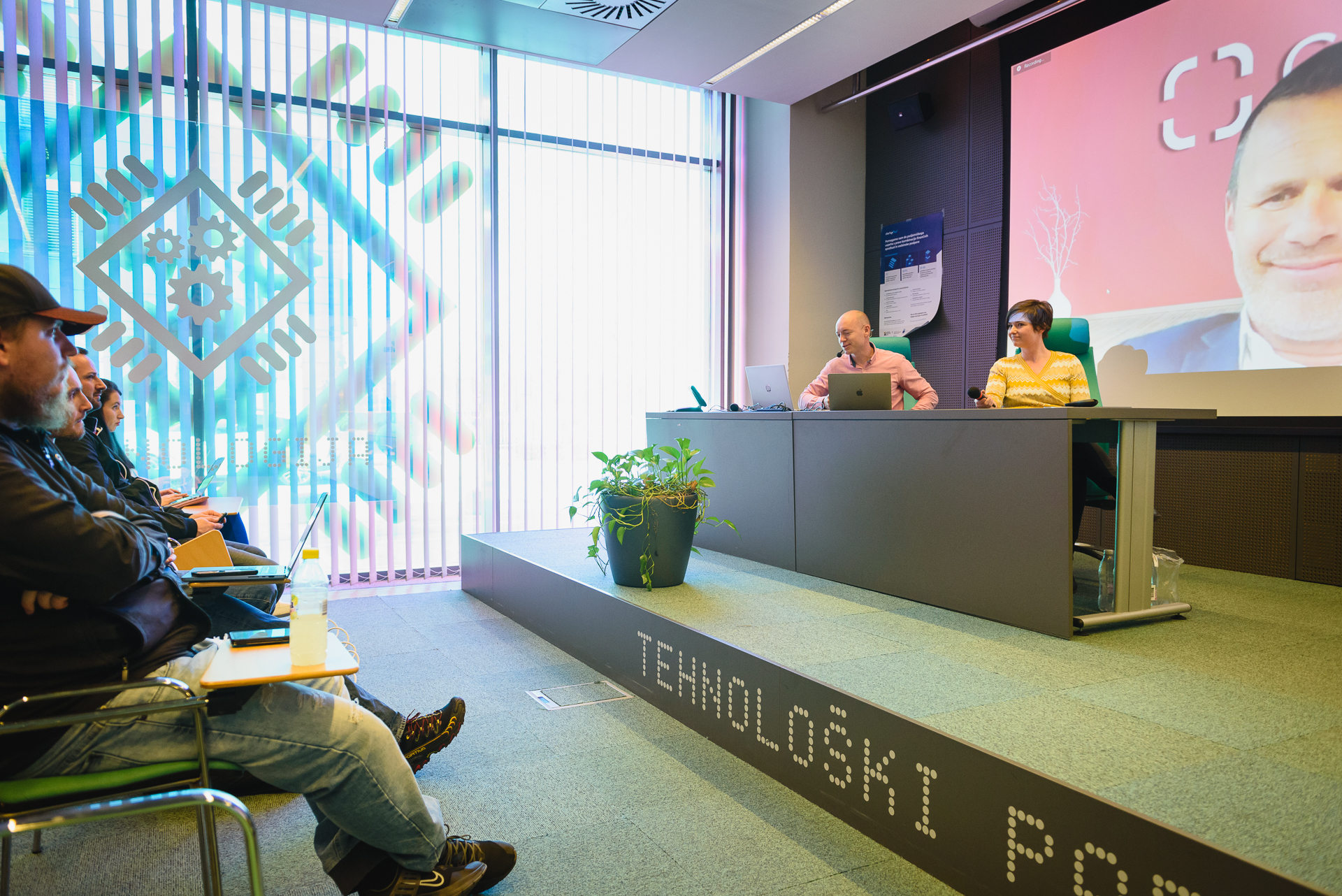
Photo: Jernej Humar
Both entrepreneurs share not only the experience of starting a business through calls, but also the obvious pivot from the original to the current idea. Both Ajda and Klemen pointed out that initial ideas are rarely the ones that actually make a business come to life.
"Our pivot is the result of seeking investors who saw the main problem with 'rent' scooters in the durability of this increasingly popular urban means of transport, the high cost of maintenance and the sheer difficulty of finding scooters around the city. The idea, therefore, seemed good at the beginning, but later proved to be quite problematic. As we do not have the capacity to operate these scooters ourselves, we have partnered with hotels, which now offer them to their hotel guests and other passers-by, who return the scooter to the same place after an hour or two. The hotels also offer experiences, which means additional earnings for the hotels themselves," said Klemen, describing the process behind the change of direction at GoGiro.
So if you're looking for something more than the typical Sacher Torte on your next visit to Vienna, the famous hotel now offers that too!
For Ajda, applying for the call helped her to pivot and dissect her business idea for Arvio. Find out how in the video below (Slovene):
Accelerating from the validation phase to the growth phase
The panel, brought together Matej Guid, co-founder of Instatext or "Grammarly on steroids", P2 recipient and Slovenian Start:Up of 2020, Manca Polovšak, co-founder of Alpine Princess and SK75 recipient, Gregor Potokar, co-founder and CEO of ABC Accelerator, and Luka Renko, member of the investment committee of the Silicon Gardens Fund, was first asked about the assumptions. But not just any, but the ones on which Matej and Manca created their first product.
"The main founder of the Alpine Princess story, Sandra, wanted to have her own leggings. As she is a keen wearer of outdoor clothing, she wanted to create 'female first' ones, made for women. This is what makes us unique because the big players in this range start with men's products first and change the women's products only in size and color. There are very few products made with women in mind and that is our benchmark, our advantage!" - Manca Polovšak, Alpine Princess
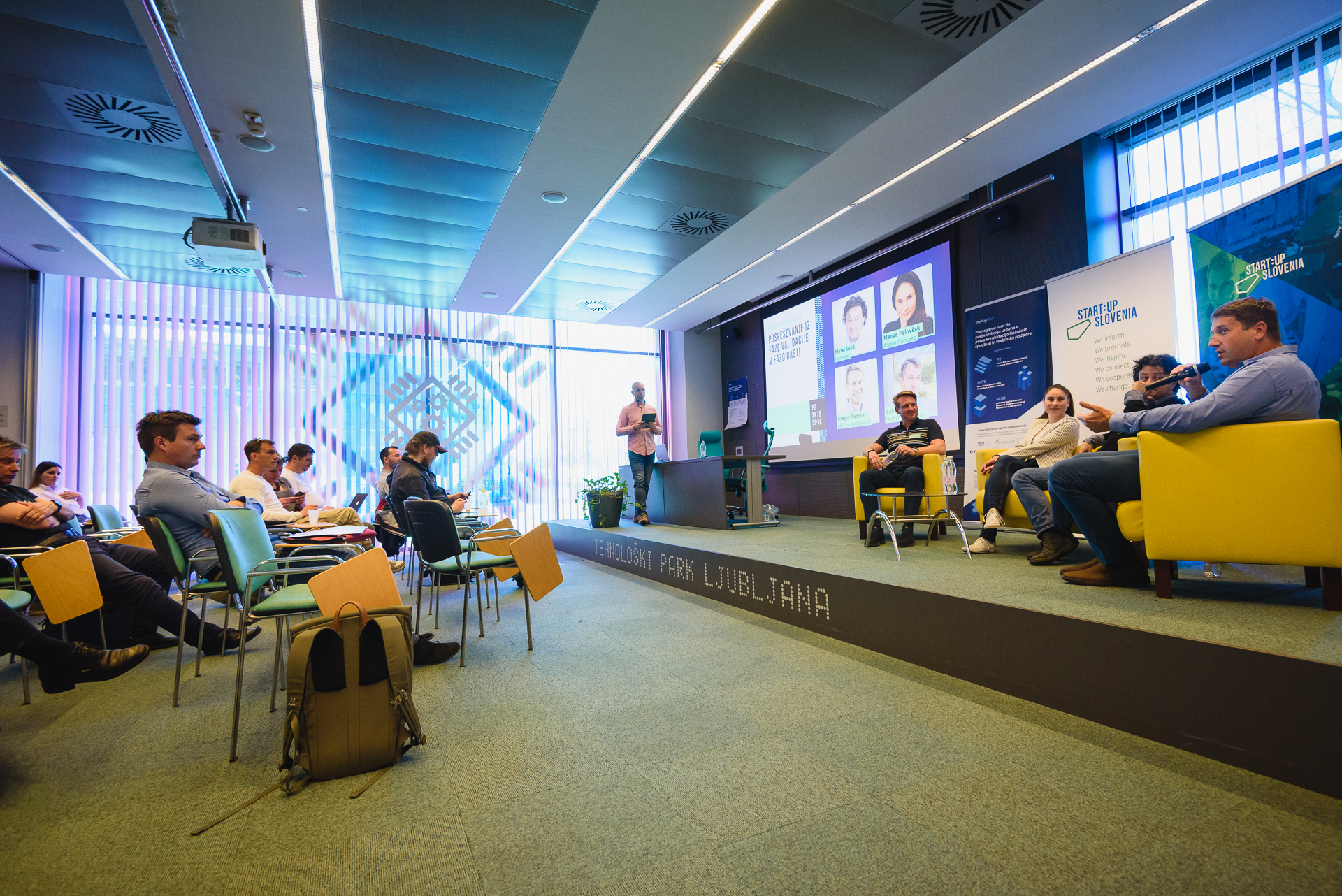
Photo: Jernej Humar
Both Manca and Matej operate in a global niche with strong competitors, and Gregor Potokar pointed out that both are typical examples of businesses that could have failed quickly if the founders had not had the key mentality that it is essential to listen to the market and find a niche that gives some feedback. Luka from Silicon Gardens went on to point out that in such cases it is essential to maintain the culture of the company and the brand itself, and this kind of mentality can sustain growth, so you need to be agile, make data-driven decisions and grab opportunities as they come your way.
"The challenge for any founder is to grow the company and hand over responsibility. An entrepreneur needs to be aware of what has made them successful so far and ask yourself whether you will continue to be successful and how to keep a company alive!" - Luka Renko, member of the Silicon Gardens Fund investment committee
How did the funding from the P2 call affect Matej and how did the SK75 loan affect Manca? Like this (Slovene):
Key milestones on the road to selling your business
At the last roundtable, Urban Lapajne from Venture Factory was joined by Dušan Omerčević, founder of Cleanshelf, which was sold to LeanIX, Borut Markelj, co-founder of Ehrana, which was sold to Glovo in Spain, and Tatjana Zabasu Mikuž, Managing Partner of South Central Ventures, who you will be able to meet at this year's Podim.
Tatjana began by pointing out that a buyer buys a company for a number of reasons, including:
New technology;
A top-notch and well-established team;
Customer base;
Income.
Borut emphasized that the market should be monitored because some opportunities are better and others are worse. In their case, the COVID-19 pandemic turned out to be good. However, when the possibility of a sale arises, both Borut and Dušan stressed that it is important to prepare the team well, especially when big names of even bigger corporations are involved. Excitement follows, but often also disappointment. For 10% of the team, such times are very stressful and uncertain, they are afraid of what will happen.
What is the biggest pitfall in Dušan's opinion and what does Tatjana advise all startups that decide to apply for calls? Listen below (Slovene):
At the end of the panel and the traditional 100% Start:up 2022 Forum, we unanimously agreed that one does not go into entrepreneurship with the idea of selling the company, but with the idea of doing something new, different and for the benefit of a better world. Tatjana wishes that as many Slovenian aspiring entrepreneurs as possible would see themselves as the next big startup, or in the good old startup jargon - as the next 'unicorn'. Are you ready for this challenge? Applications are open now!
###
Content support for recipients of P2, SK75 or SI-SK financial products under the "de minimis" scheme is co-financed from the Slovene Enterprise Fund and the European Union from the European Regional Development Fund. This is implemented on the basis of the Content Support for Funds Recipients (SMEs) Programme in the 2018-2023 period, under the Operational Programme for the Implementation of the European Cohesion Policy 2014-2020.




